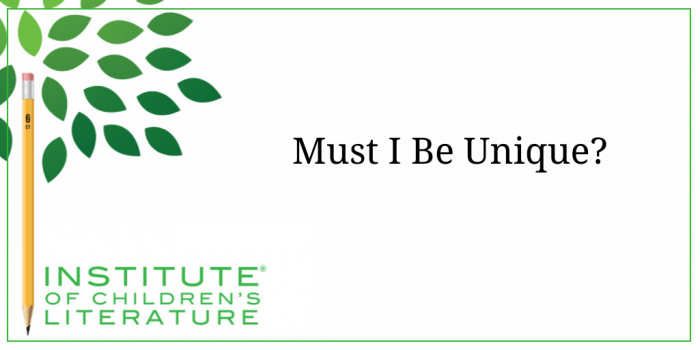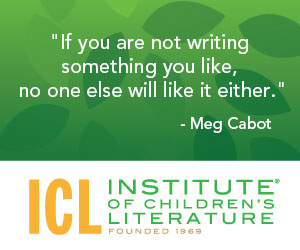1000 N. West Street #1200, Wilmington, DE 19801
© 2024 Direct Learning Systems, Inc. All rights reserved.

We teach our students how to write and get published!
View our Course Catalog >

Wrong. The key to taking a well-worn story path and making it new is in asking a fresh new question about it. Gail Carson Levine wondered what it would be like if poor Cinderella were under a spell to be constantly obedient, and Ella Enchanted was born. Marissa Meyer wondered what it would be like if Cinderella were a cyborg, and Cinder launched the Lunar Chronicles to great success. Rafe Martin imagined a disfigured Algonquin girl who sees what no one else can see and the resulting picture book, The Rough-Faced Girl, took a unique place in Cinderella tales. In other words, there are many ways to tell the same story, ways that look afresh at the story’s circumstances, themes, time period, tone, voice, etc., and find a new direction for approaching these unique bits of the whole. The key to each one is to ask a new question.
The New Question
Writers ask questions. You know how toddlers can come up with a question for every single situation they find themselves in? In fact, it’s fairly rare for a toddler to ask just one question. Normally they come with a barrage of questions. One of the sure traits of a writer is that we never outgrow being questioning toddlers. We always want to know, what would it be like if we changed this thing? What if we lived in a world where one person carried the cultural memory for all? The Giver explored that. What if vampires had to avoid the sun, not because they’d burst into flames, but because they’d sparkle like diamonds? Twilight went there. Both The Giver and Twilight trod some fairly common genre ground, dystopian novel and vampire novel, but it was the questions asked and answered that took the books somewhere new. It was the questions asked and answered that made a place for each book.
Think about your favorite genre of novel. Which ones do you love to read? What do they have in common? Often the books we love to read are the ones where we can make our own new mark. Think about that genre and make a list of things that books in that genre tend to have in common. Now, take each element in that list and ask a new question.
For example, I love urban fantasy. I love novels that take place in an edgy setting with a magical element. I love the snark of those novels, and the fact that the main character (even when an anti-hero) tends to have a strong moral code. So as I list elements I like about the genre, I can also ask question. What if I wrote an urban fantasy where the setting wasn’t a city, but a space ship? How might that change things up? What if I wrote an urban fantasy on a space colony inhabited only by women? How would that make the story different? What if I set my urban fantasy in Washington, D.C., and the magic came from the true illuminati, wizards who pull the strings? The more questions I ask, the more I can begin taking my book on the road less travelled.
None of us truly tells a story never told before, but the more we ask questions, the more the answers will take us somewhere fresh and interesting. And at the end, your story will be unique because the questions and the answers are uniquely yours.
With over 100 books in publication, Jan Fields writes both chapter books for children and mystery novels for adults. She’s also known for a variety of experiences teaching writing, from one session SCBWI events to lengthier Highlights Foundation workshops to these blog posts for the Institute of Children’s Literature. As a former ICL instructor, Jan enjoys equipping writers for success in whatever way she can.
1000 N. West Street #1200, Wilmington, DE 19801
© 2024 Direct Learning Systems, Inc. All rights reserved.
1000 N. West Street #1200, Wilmington, DE 19801
© 2024 Direct Learning Systems, Inc. All rights reserved.
1000 N. West Street #1200, Wilmington, DE 19801
© 2024 Direct Learning Systems, Inc. All rights reserved.
1000 N. West Street #1200, Wilmington, DE 19801
© 2024 Direct Learning Systems, Inc. All rights reserved.

1000 N. West Street #1200, Wilmington, DE 19801
© 2025 Direct Learning Systems, Inc. All rights reserved.

1000 N. West Street #1200, Wilmington, DE 19801
©2025 Direct Learning Systems, Inc. All rights reserved. Privacy Policy.